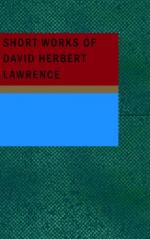|
This section contains 5,008 words (approx. 17 pages at 300 words per page) |

|
SOURCE: Solomon, Gerald. “The Banal, and the Poetry of D. H. Lawrence.” Essays in Criticism 23, no. 3 (July 1973): 354-67.
In the following essay, Solomon discusses the role of self-knowledge in the development of poetic depth, and suggests that a certain unevenness of quality and tone in Lawrence's poetry may be due to the poet's fear of self-knowledge.
The banal is that in which we see a statement falling back on itself, returning us, empty-handed, to where we were. This is the tautology that lies at the end of all ultimate thinking, the tautology of the closed and therefore vicious circle, the circle of intellectual process that sends Marlowe's Faust to the Devil, and a later philosopher, Wittgenstein, to the premature retirement of a schoolmaster's life. Fortunately, Wittgenstein found it possible to overcome the immobilisation of his thought by a sense of banality by questioning the established conventions of language...
|
This section contains 5,008 words (approx. 17 pages at 300 words per page) |

|


